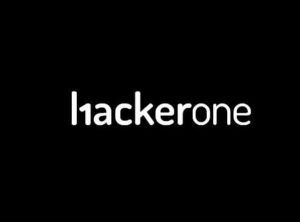CVE Alert: CVE-2025-54236 – Adobe – Adobe Commerce
CVE-2025-54236
Adobe Commerce versions 2.4.9-alpha2, 2.4.8-p2, 2.4.7-p7, 2.4.6-p12, 2.4.5-p14, 2.4.4-p15 and earlier are affected by an Improper Input Validation vulnerability. A successful attacker can abuse this to achieve session takeover, increasing the confidentiality, and integrity impact to high. Exploitation of this issue does not require user interaction.
AI Summary Analysis
Risk verdict
Urgent: active exploitation of a critical, unauthenticated, network-based input validation flaw enabling session takeover.
Why this matters
Attackers can hijack legitimate sessions, potentially gaining admin or elevated access with high impact to confidentiality and integrity. No user interaction is required, making rapid compromise possible across exposed deployments and enabling data exfiltration or tampering.
Most likely attack path
- Exposed over the network with no privileges required and no user interaction.
- An attacker sends crafted input to a vulnerable component, triggering session takeover and token reuse.
- With scope unchanged, attacker can operate within the same domain context and potentially impersonate users, including administrators, without triggering automated alerts if token handling is misused.
Who is most exposed
Publicly accessible Magento/Adobe Commerce instances running older or unpatched branches are at highest risk, particularly e-commerce sites with internet-facing admin or checkout endpoints and integrations that rely on session tokens.
Detection ideas
- Sudden creation of new sessions for existing accounts from unusual IPs or geographies.
- Admin sessions appearing without corresponding user login activity.
- Unusual spikes in login or session token churn, especially from remote networks.
- Repeated validation/input requests targeting session endpoints.
- Signatures or payloads matching known exploit indicators in HTTP traffic or application logs.
Mitigation and prioritisation
- Apply vendor patch to the latest supported release; validate compatibility in staging before production.
- Implement compensating controls: restrict admin access to VPN or MFA-protected networks; enforce MFA for all admin users; tighten network ACLs and harden session management.
- Deploy WAF rules or rate-limiting to block known exploit patterns; consider disabling or reconfiguring risky input paths pending patch.
- Rotate all active sessions post-patch; conduct credential hygiene and force password resets if needed.
- Change-management: test thoroughly, coordinate with third-party extensions, confirm RUM/monitoring coverage, and schedule immediate remediation given active exploitation.
Support Our Work
A considerable amount of time and effort goes into maintaining this website, creating backend automation and creating new features and content for you to make actionable intelligence decisions. Everyone that supports the site helps enable new functionality.
If you like the site, please support us on Patreon or Buy Me A Coffee using the buttons below.


![[QILIN] - Ransomware Victim: Doha British School 3 image](https://www.redpacketsecurity.com/wp-content/uploads/2024/09/image-300x300.png)

